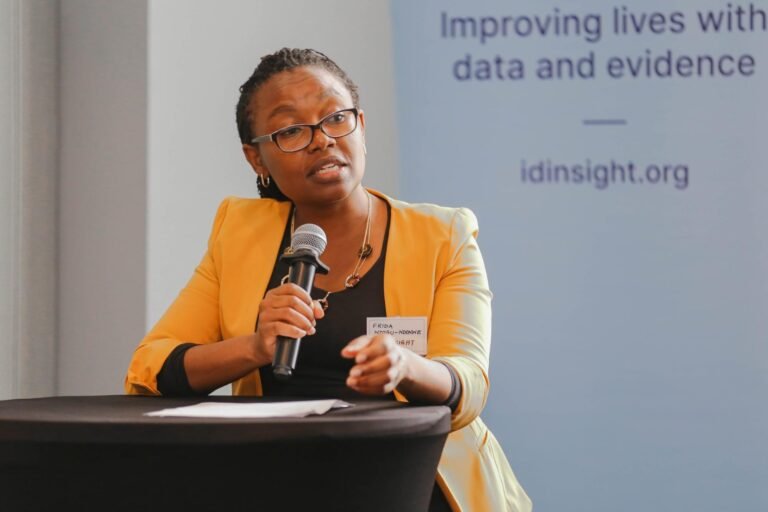As the country strives towards universal health coverage, a glaring challenge continues to emerge – the mismanagement of funds and a lack of accountability in both financial and non-financial information flows.
According to a study, conducted by IDinsight and, released on October 2024, there is troubling disconnect between the allocation of funds and tangible health outcomes.
“A lot of our health financing decisions are based largely on financial data, but we are not looking at health outcomes and health service utilization,” said Dr. Frida Njogu-Ndongwe, IDinsight’s Regional Director for East and Southern Africa.
The implications of this disconnect are far-reaching. Despite initiatives like Linda Mama, aimed at improving maternal healthcare, the country still grapples with a high maternal mortality rate.
According to data from the World Bank Kenya’s mortality rate stands at a range of over 500 deaths per 100,000 live births since 2017. These statistics serve as a stark reminder of the urgent need for more effective allocation and utilization of healthcare resources.
In accordance to Dr. Martin Atela, Project Director for IDinsight, there is a need to the integrate financial data with health outcome metrics.
“There is a good understanding on how funds flow from the Treasury to counties and health. However, what is missing is how the lower devolved levels account for these finances. How do counties share data on the finances allocated and outcomes of how they used the finances upwards all the way to the treasury?” he asked.
The study calls for a paradigm shift in how health spending is tracked and evaluated. It proposes stronger data linkages between the Kenya Health Information System and the Integrated Financial Management Information System (IFMIS). Such integration could significantly improve oversight and provide critical information for addressing public health challenges.
“We need to move towards Program Based Budgeting (PBB) and Outcome Based Budgeting. We need to look at the quality of service delivery and see where the gaps are,” said Dr. Frida Njogu-Ndongwe.
However, the conversation doesn’t stop at government spending and need for change. The role of private philanthropy in Africa’s development is also under scrutiny.
Dr. Ndongwe, fresh from attending the United Nations General Assembly (UNGA 79), observed a growing interest in trust-based philanthropy through unrestricted and semi-restricted funding. This approach represents a critical shift in how private donors engage with African initiatives, placing more trust in local organizations to make decisions about program design and resource allocation.
However, challenges remain. There is need for more program officers and investment directors to be based in the Global South, where they can better understand grantees’ needs and challenges. She also advocates for closer collaboration among investors to create a more supportive ecosystem for growing organizations.
The push for data-driven decision-making extends to the philanthropic sector as well. While data and evidence have sometimes been perceived as tools for enforcing accountability standards, potentially reinforcing historical power imbalances, Dr. Ndongwe believes they can be useful as learning tools.
“When used as a tool for learning, the true power of evidence can be harnessed so leaders get clarity on where they should invest more, which interventions should scale, and where they need to divest so they can redirect resources to more impactful initiatives,” she said.
Kenya, and Africa as a whole, stands at a crossroads of development and healthcare reform, the call for accountability in both public spending and private philanthropy grows louder. The integration of financial data with health outcomes, in combination with trust-based approach to philanthropy, could pave the way for more effective, impactful interventions across the continent.
The road ahead requires a delicate balance – leveraging data for accountability without stifling innovation, and fostering trust in local leadership while ensuring responsible use of resources.
With Kenya and other African nations navigating these challenges, the potential for transformative change in healthcare and development is immense. The key lies in embracing transparency, fostering collaboration between public and private sectors, and always keeping the end goal in sight: improved health outcomes and quality of life for all Africans.


